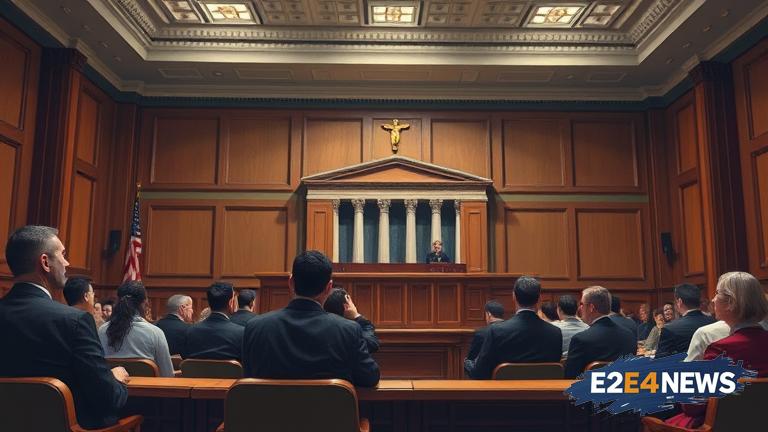In a significant ruling, a federal judge has overturned a state law that banned religious schools from participating in a college credits program. The law, which was enacted to prevent religious schools from receiving public funding, was deemed unconstitutional by the judge. The ruling is a major victory for religious schools and organizations that argued the law unfairly discriminated against them. The college credits program, which allows high school students to take college-level courses and earn credits, was previously off-limits to students attending religious schools. The law was challenged by a group of religious schools and organizations, who argued that it violated the First Amendment by unfairly targeting religious institutions. The judge agreed, stating that the law was overly broad and did not provide a compelling reason for excluding religious schools from the program. The ruling is expected to have significant implications for religious schools and organizations across the state, who will now be able to participate in the college credits program. The decision is also seen as a major win for advocates of school choice, who argue that parents should have the freedom to choose the best educational options for their children, regardless of whether they are public, private, or religious. The case is likely to be appealed, but for now, religious schools are celebrating the ruling as a major victory. The judge’s decision is also being hailed as a significant step forward for religious freedom, as it recognizes the importance of protecting the rights of religious institutions. The ruling is expected to have far-reaching implications, not just for religious schools, but for the broader education landscape. It is likely to spark renewed debate about the role of religion in public life and the importance of protecting religious freedom. The case has also highlighted the importance of judicial oversight, as the judge’s ruling demonstrates the critical role that the judiciary plays in protecting individual rights and ensuring that laws are constitutional. The decision is also a reminder that the First Amendment is a fundamental protection for all Americans, regardless of their religious beliefs. The ruling is likely to be closely watched by educators, policymakers, and advocates of religious freedom, as it sets an important precedent for the treatment of religious schools and organizations. In addition to the implications for religious schools, the ruling is also expected to have significant implications for the broader education landscape. It is likely to spark renewed debate about the role of religion in public life and the importance of protecting religious freedom. The case has also highlighted the importance of judicial oversight, as the judge’s ruling demonstrates the critical role that the judiciary plays in protecting individual rights and ensuring that laws are constitutional. The decision is also a reminder that the First Amendment is a fundamental protection for all Americans, regardless of their religious beliefs. The ruling is likely to be closely watched by educators, policymakers, and advocates of religious freedom, as it sets an important precedent for the treatment of religious schools and organizations. Furthermore, the ruling is expected to have significant implications for the state’s education system, as it will likely lead to increased participation in the college credits program by students from religious schools. This, in turn, is expected to lead to increased diversity and inclusivity in the program, as students from a wider range of backgrounds will be able to participate. The ruling is also expected to have significant implications for the state’s economy, as it will likely lead to increased investment in education and workforce development. Overall, the ruling is a significant victory for religious freedom and a major step forward for education in the state. The decision is expected to have far-reaching implications and will likely be closely watched by educators, policymakers, and advocates of religious freedom. The ruling is a reminder that the judiciary plays a critical role in protecting individual rights and ensuring that laws are constitutional. The decision is also a testament to the importance of protecting religious freedom and promoting diversity and inclusivity in education. The case has highlighted the importance of judicial oversight and the critical role that the judiciary plays in protecting individual rights. The ruling is likely to be appealed, but for now, religious schools are celebrating the ruling as a major victory. The decision is expected to have significant implications for the state’s education system and economy, and will likely be closely watched by educators, policymakers, and advocates of religious freedom.
